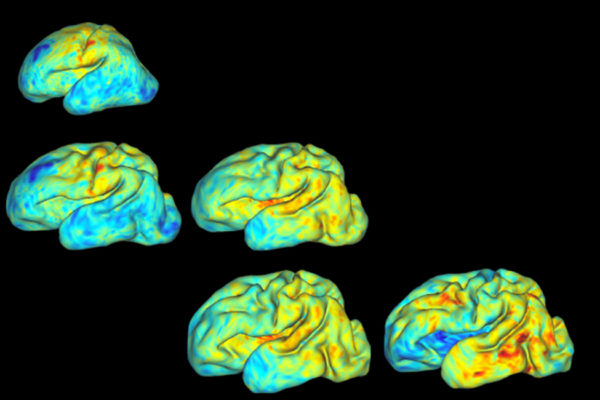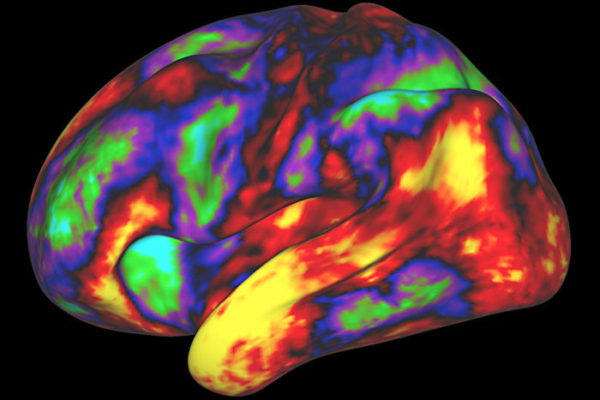Cannabis during pregnancy bumps psychosis risk in offspring
Pregnant women who use cannabis may slightly increase the risk their unborn child will develop psychosis later in life, suggests new research from Washington University in St. Louis.
How team sports change a child’s brain
Adult depression has long been associated with shrinkage of the hippocampus, a brain region that plays an important role in memory and response to stress. Now, new research from Washington University in St. Louis has linked participation in team sports to larger hippocampal volumes in children and less depression in boys ages 9 to 11.
3-D mapping babies’ brains
Research from a collaborative team at Washington University in St. Louis tested a 3-D method that could lead to new diagnostic tools that will precisely measure the third-trimester growth and folding patterns of a baby’s brain. Their findings might help to sound an early alarm on developmental disorders in preemies that could affect them later in life.
Brain development through adolescence to be focus of national study
In a landmark national study, scientists will use advanced brain imaging on more than 10,000 children, along with interviews and behavioral tests, to determine how experiences, together with a child’s changing biology, affect brain development.
WashU Expert: Poverty’s most insidious damage is to a child’s brain
A study published July 20 in JAMA Pediatrics provides even more compelling evidence that growing up in poverty has detrimental effects on a child’s brain. Dealing with this must become “our top public health priority,” writes the School of Medicine’s Joan Luby, MD, in an accompanying editorial.
Defects in brain cell migration linked to mental retardation
A rare, inherited form of mental retardation has led
scientists at the School of Medicine to
three important “travel agents” at work in the developing brain. The agents make it possible for brain neurons to travel
from where they are born to other brain regions where they will
permanently reside.
Brain differences seen at 6 months in infants who develop autism
Researchers have found significant differences in brain development in infants as young as six months old who later develop autism, compared to babies who don’t develop the disorder. The new research, which relied on brain scans acquired at night while infants were naturally sleeping, suggests that autism doesn’t appear abruptly, but instead develops over time during infancy.
Prenatal smoking increases ADHD risk in some children
Smoking while pregnant combined with genetic factors greatly increases the risk of severe ADHD.Past research has suggested that both genes and prenatal insults — such as exposure to alcohol and nicotine — can increase the risk of attention-deficit/hyperactivity disorder (ADHD). But the identified increases in risk have been very modest. Now, a team of Washington University scientists has found that when those factors are studied together, risk of a severe type of ADHD greatly increases.
Prenatal smoking increases ADHD risk in some children
Smoking while pregnant combined with genetic factors greatly increases the risk of severe ADHD.Past research has suggested that both genes and prenatal insults — such as exposure to alcohol and nicotine — can increase the risk of attention-deficit/hyperactivity disorder (ADHD). But the identified increases in risk have been very modest. Now, a team of Washington University scientists has found that when those factors are studied together, risk of a severe type of ADHD greatly increases.
Adult and child brains perform tasks differently
As our brains mature, the red regions are used more frequently, and the blue areas are used less.Children activate different and more regions of their brains than adults when they perform word tasks, according to investigators at the School of Medicine. Reporting in the journal Cerebral Cortex, the researchers say those changes in regional brain activity from childhood to adulthood may reflect the more efficient use of our brains as we mature.
View More Stories




